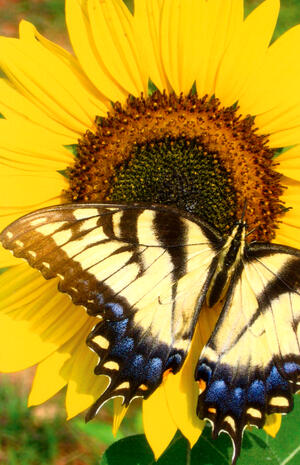In this session, leading experts dive deep into the soil-related benefits of cover crops. Ray Weil (University of Maryland) discusses the physical benefits, including improved water infiltration and aggregate stability, as well as reduced compaction. Michel Cavigelli (USDA-ARS) explains how cover crop management affects soil health, addressing cropping systems, carbon storage, organic matter, conservation tillage and long-term dynamics. Stuart Grandy (University of New Hampshire) discusses emerging concepts for harnessing microbes to build organic matter.
This session was part of Cover Crops for Soil Health, a three-day professional development workshop hosted by Northeast SARE and Delaware State University in March 2016. All session recordings are available online.
Find more practical information about cover crops in the Cover Crops Topic Room.
Ray Weil has taught soil science to over 6,000 students at the University of Maryland and abroad and has addressed over 4,000 farmers at meetings and field days. He has also brought an ecological approach to soil science with his textbook The Nature and Properties of Soils. He is a pioneer of sustainable agriculture and cover cropping systems. For the last decade, he and many of his graduate students have investigated various properties of forage radish as a cover crop.
Michel Cavigelli is the Lead Scientist on the ARS Farming Systems Project (FSP), a long-term field cropping systems study evaluating the sustainability of no-till, conventional till, and organic cropping systems by measuring agronomic performance, nutrient dynamics, soil biological activity and community structure, and predicting the long-term sustainability of cropping systems. Dr. Cavigelli's research contributes to all areas of FSP research but his primary focus is on agronomic performance and C, N and P dynamics. Nutrient dynamics research currently includes measuring soil inorganic nitrogen dynamics, biogenic greenhouse gas (CO2, N2O, CH4) fluxes, soil and nutrient runoff potentials, and nitrate leaching potential. His goal is to better understand the factors controlling these dynamics and to incorporate these measurements into existing predictive models to help assess C, N and P budgets for the FSP cropping systems. Dr. Cavigelli also conducts research on an organic farm near Buckeystown, MD, to determine the effects of intensive tillage on soil quality and the appropriate greensand application rate to maintain adequate K for alfalfa production.
Stuart Grandy is a professor at the University of New Hampshire where his research examines how soil organisms interact with their environment to regulate ecosystem processes such as nutrient cycling, organic matter turnover, trace gas emissions, and productivity. This research encompasses multiple spatial scales and lies at the interface of soil ecology, biogeochemistry, and ecosystem science. Much of his current work focuses in some capacity on the feedbacks between plants, organic matter dynamics, and soil biological communities. His research spans sites in the Northeast, Midwest, and West and includes different agriculture, forest, and mountain ecosystems.
Complete session recordings
- Overview of Cover Crop Developments Nationwide
- Cover Crop Planting Dates and Seeding Rates
- Cover Crop Cocktails
- Establishment Methods for Cover Crops and Cash Crops in Grain Production Systems
- Fitting Cover Crops in Vegetable Rotations
- Managing Cover Crops for Ecosystem Services in Vegetable Systems
- Cover Crops: Current and Future Directions
- Evaluating and Improving Cover Crop Performance and Adoption
- Cover Crops as Part of an Overall Nutrient Management System
- Managing Soil Health With Cover Crops: Beyond the Basics
- Cover Crop Field Tour Recap and Debrief
- Farmer Panel on Cover Crops
